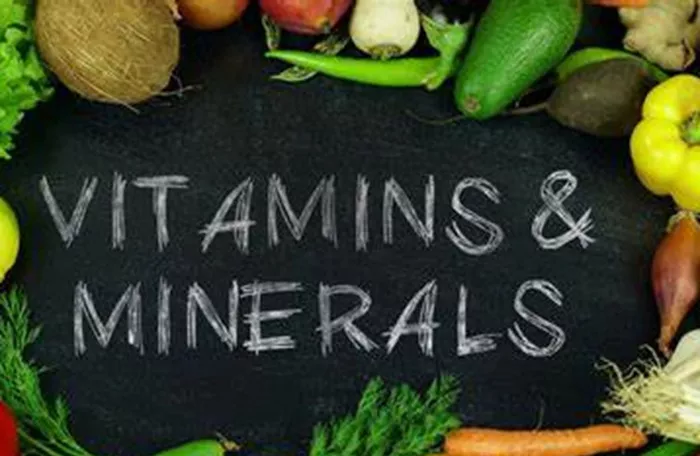Vitamins and minerals are essential nutrients that play critical roles in maintaining overall health. They support numerous bodily functions, including metabolism, immune response, and the maintenance of healthy skin and bones. Understanding which vitamins and minerals are most important can empower individuals to make informed dietary choices that promote well-being.
The Role of Vitamins
Vitamins are organic compounds that the body requires in small amounts for various functions. They can be classified into two categories: water-soluble and fat-soluble.
Water-Soluble Vitamins
Water-soluble vitamins, which include Vitamin C and the B-complex vitamins, are not stored in the body and must be replenished regularly through diet.
Vitamin C: Essential for the growth and repair of tissues, Vitamin C also plays a crucial role in collagen production, iron absorption, and immune function. Foods rich in Vitamin C include citrus fruits, strawberries, bell peppers, and broccoli.
B-Complex Vitamins: This group includes several vitamins, such as B1 (Thiamine), B2 (Riboflavin), B3 (Niacin), B5 (Pantothenic Acid), B6 (Pyridoxine), B7 (Biotin), B9 (Folate), and B12 (Cobalamin). Each has unique roles, such as energy production, red blood cell formation, and brain health. Whole grains, meats, eggs, dairy products, and leafy greens are excellent sources of B vitamins.
Fat-Soluble Vitamins
Fat-soluble vitamins—Vitamins A, D, E, and K—are stored in the body’s fatty tissues and liver. They are absorbed along with dietary fat.
Vitamin A: Vital for vision, immune function, and skin health, Vitamin A can be found in foods like carrots, sweet potatoes, spinach, and liver.
Vitamin D: Known as the “sunshine vitamin,” Vitamin D is crucial for calcium absorption and bone health. It can be synthesized by the body through sunlight exposure, but dietary sources include fatty fish, fortified dairy products, and egg yolks.
Vitamin E: An antioxidant that protects cells from damage, Vitamin E is found in nuts, seeds, and green leafy vegetables.
Vitamin K: Important for blood clotting and bone metabolism, Vitamin K is present in leafy greens, broccoli, and Brussels sprouts.
The Importance of Minerals
Minerals are inorganic elements that also play significant roles in bodily functions. They can be categorized into macro-minerals and trace minerals.
Macro-Minerals
Macro-minerals are required in larger amounts and include calcium, phosphorus, magnesium, sodium, potassium, and chloride.
Calcium: Essential for strong bones and teeth, calcium also plays a role in muscle function and nerve signaling. Dairy products, leafy greens, and fortified foods are rich sources.
Phosphorus: Working closely with calcium, phosphorus is crucial for bone health, energy production, and cell repair. It is found in meats, dairy, nuts, and whole grains.
Magnesium: Involved in over 300 biochemical reactions, magnesium supports muscle and nerve function, blood sugar regulation, and blood pressure maintenance. Sources include nuts, seeds, whole grains, and leafy greens.
Trace Minerals
Trace minerals are required in smaller amounts but are equally vital for health. They include iron, zinc, copper, manganese, selenium, and iodine.
Iron: Critical for oxygen transport in the blood, iron is found in red meat, poultry, lentils, beans, and fortified cereals.
Zinc: Important for immune function, wound healing, and DNA synthesis, zinc is present in meat, shellfish, legumes, seeds, and nuts.
Selenium: An antioxidant that protects against cell damage, selenium is found in Brazil nuts, fish, and eggs.
Iodine: Essential for thyroid function and hormone production, iodine is commonly found in iodized salt, dairy products, and seafood.
The Impact of Deficiencies
A deficiency in vitamins and minerals can lead to various health issues. Understanding the symptoms and risks associated with deficiencies can highlight the importance of maintaining a balanced diet.
See Also: 5 Essential Vitamins That Support Eye Health in Cataract Patients
Common Vitamin Deficiencies
Vitamin D Deficiency: Can lead to bone disorders such as rickets in children and osteomalacia in adults.
Vitamin B12 Deficiency: Can cause anemia, fatigue, and neurological issues.
Vitamin A Deficiency: Can lead to vision problems, particularly night blindness.
Common Mineral Deficiencies
Iron Deficiency: Can result in anemia, characterized by fatigue, weakness, and pale skin.
Calcium Deficiency: Can lead to osteoporosis and increased fracture risk.
How to Ensure Adequate Intake
Maintaining adequate levels of vitamins and minerals requires a well-balanced diet rich in fruits, vegetables, whole grains, lean proteins, and healthy fats.
Dietary Sources
Fruits and Vegetables: Aim for a variety of colors and types to maximize nutrient intake.
Whole Grains: Choose whole grains over refined grains for added nutrients.
Lean Proteins: Incorporate sources such as poultry, fish, legumes, and nuts.
Healthy Fats: Include sources like olive oil, avocados, and fatty fish.
Supplementation
While whole foods are the best source of nutrients, supplements can be beneficial in certain situations, such as dietary restrictions, specific health conditions, or during certain life stages like pregnancy.
Consulting Health Professionals
It’s essential to consult with a healthcare provider before starting any supplementation to avoid potential toxicity or interactions with medications.
Conclusion
Understanding the most important vitamins and minerals is crucial for maintaining optimal health. By incorporating a diverse range of nutrient-rich foods into your diet and being aware of your body’s needs, you can support overall well-being and prevent deficiencies. Prioritizing a balanced diet will ultimately help you lead a healthier, more energetic life.
Related Topics
7 Essential Vitamins to Strengthen Your Immune System This Cold and Flu Season

































